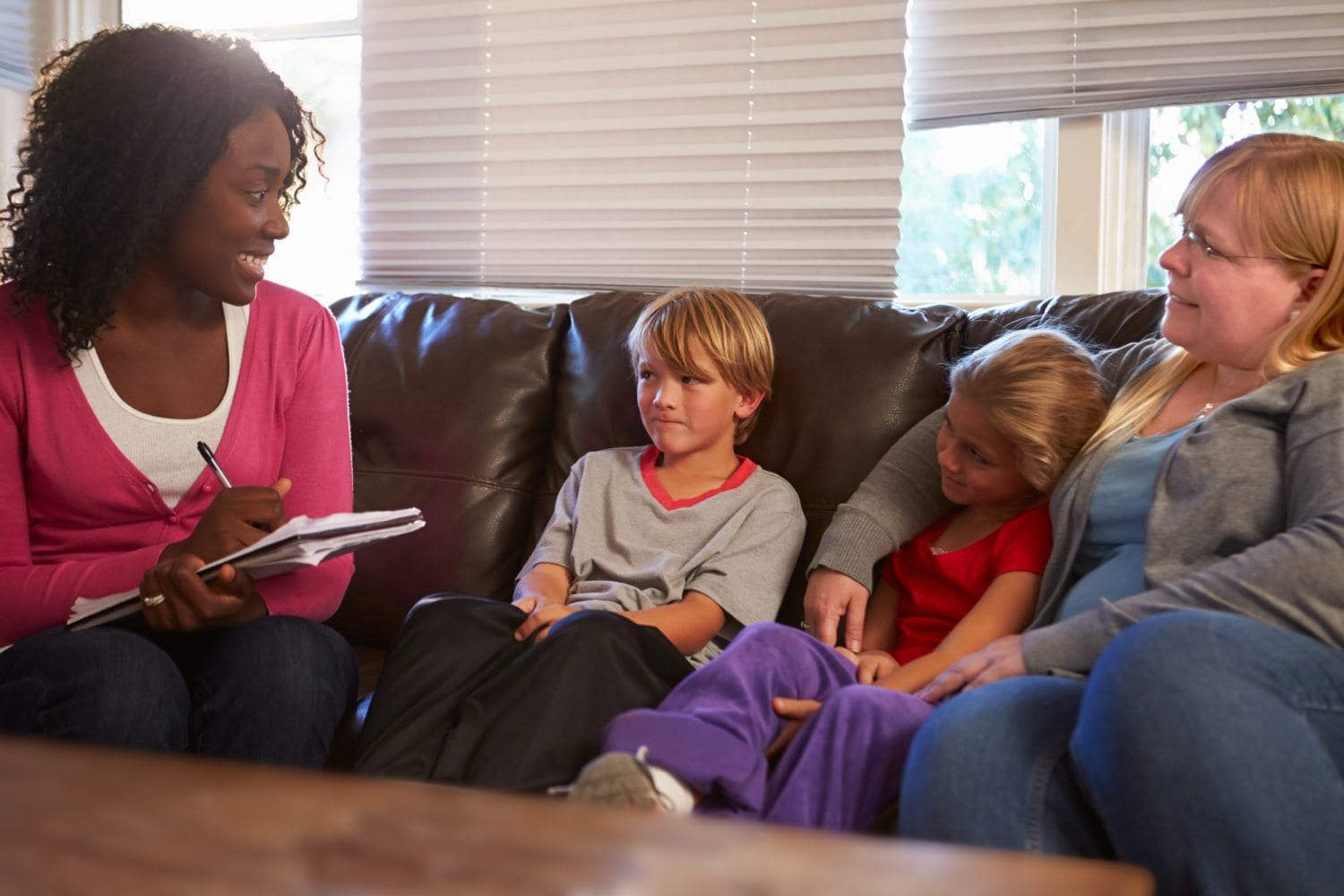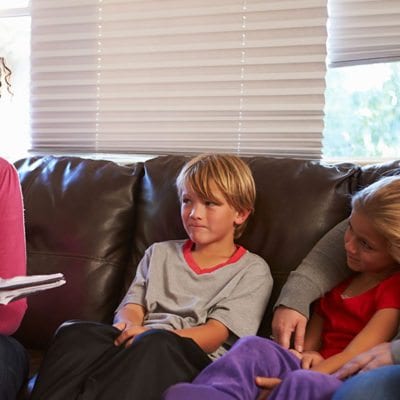When a child is placed in foster care, a family is created. When that same child finds their forever home through adoption, a family is created. Creating families is at the heart of our work at DePaul. We work to strengthen and reunite existing families.
The children and young people that we serve often enter the system after being removed from dangerous, unstable, or otherwise unsuitable home situations—and for many parents, the removal of a child can represent a clear call for change. To this end, DePaul’s Families Together service aims to support parents currently going through the process of improving themselves and their situations in order to regain custody of their children.
“A moment like this is a prime opportunity for change—if this can’t motivate a parent, nothing will,” said Cindy Goldstein, a Treatment Foster Care Specialist who also provides Families Together services in Roanoke.
The service, which considers the family holistically, partners parents with a caseworker. When children are removed from a home by Departments of Social Services, the parents are provided with a service plan that outlines the changes that have to take place in order for them to regain custody. Caseworkers act as coaches, guides, and cheerleaders, motivating parents to take control of their lives and connecting them with the resources they need in order to be successful.
By law, custodial agencies are required to offer support for reunification, but overworked Departments of Social Services often contract with outside agencies like DePaul to provide this service, with an added benefit. “It’s often easier for an outside agency to establish trust with the parent,” Goldstein said, because it’s easier for the parents to see them as allies, not enemies.
“Every parent goes through tremendous stress when their child isn’t with them,” said Faith Christian, a parent working through the reunification process in order to regain custody of her youngest child. “Families Together is a great service,” she said. “I had two older children when I lived in Pulaski, and I wasn’t given the opportunity to reunite with them—they got adopted out. But I’ve been blessed to be given this kind of chance in Roanoke.”
At its core, Families Together equips the parents with the skills and connections they need to be better, safer, more nurturing caregivers for their children. By providing them with emotional support and careful guidance, the parents can develop and hone coping skills to address personal and environmental challenges.
But Families Together is not a singular service—DePaul offers Supervised Visitation not only for youth in DePaul homes, but also for those in the custody of other agencies. Assistance in transportation to or from our offices for visitation is also available, and DePaul does more than merely supervise—during each session, specialists are on hand to help ensure a positive experience for both child and parent. Coaching is provided for the parents prior to, during, and after every visit, in order to help them fully engage with their children and understand emotional cues.
“Seeing how the parents grow and recognize how to approach problems differently—it’s a wonderful chance for them to begin to repair their relationship,” said Hope Robinson, currently the Branch Director of Foster Care in Charlottesville. “It’s always our hope that [those experiences] can transfer back to full placement in their birth homes.”

In addition to Supervised Visitation, DePaul is also prepared to offer a service known as Kinship Care, which would aim to find foster placements within a child’s extended family, rather than from the community at large. This connection has obvious benefits: It creates a smoother transition for the child, and helps him or her maintain a meaningful connection to his or her birth family. It can often mean a long and difficult search, however, to find family members who are not only stable themselves, but also willing and able to open their homes.
“It’s not just kinship or health history or anything like that,” Goldstein said. “Most of us are lucky. We don’t have to think about whether or not we look like our family, whether or not we have the same eyes or the same laugh.”
There’s a value in those similarities—in a child knowing that she has her uncle’s smile or her grandmother’s nose. Through these diverse and valuable services, DePaul and its employees work tirelessly to support, unify, and strengthen existing families, making them the best possible environment for parents and children alike.

